Video MGMT System
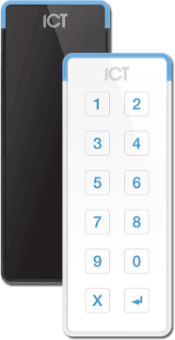 Access Control
Access Control
Voice & Data Wiring
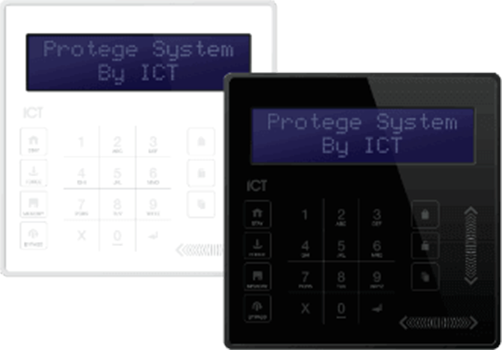 Burglar Alarm
Burglar Alarm
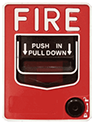 Fire Alarm
Fire Alarm
Video MGMT System
Voice & Data Wiring
While commercial-grade security systems are more complex and expensive than those for home installations, the payoff in improved security and operational efficiency is well worth the expense.
Commercial security installations and types of security systems like access control, video surveillance, and intrusion detection use durable construction materials, reliable hardwiring, specialized software, and modular components for customizations and system integrations.
A malfunctioning security system in a commercial setting can result in lost productivity, revenue, and even legal liability. For this reason, commercial-grade security systems use the most durable and dependable products available for video surveillance, intrusion detection, and access control.
HD (high definition) and IP (Internet Protocol) security cameras are essential to any business security system because they make remote monitoring possible while collecting detailed, actionable evidence.
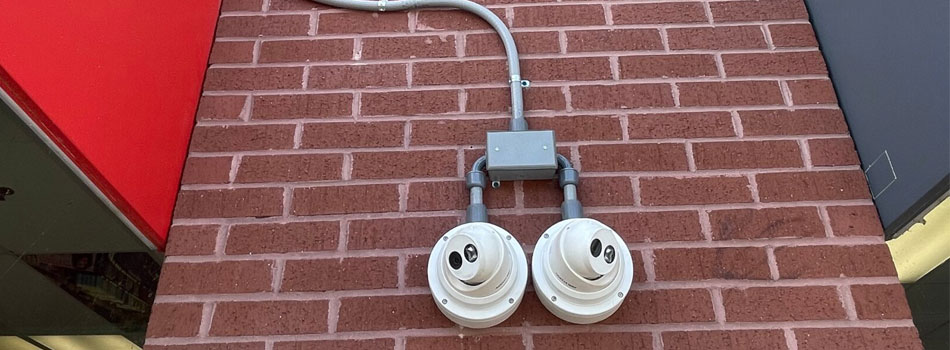
Many HD commercial security cameras also have advanced AI-based capabilities, making effective and manageable security possible in even the most dynamic commercial environments.
Before entry to secured sites is allowed, a commercial-grade access control system will verify the authenticity of a presented credential and then cross-check that identity against access authorizations. In this way, access control systems protect valuable assets and restricted areas from unauthorized people.
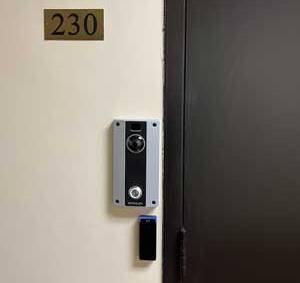
Access systems are particularly useful in dynamic or sensitive business and institutional settings because they can automate emergency protocols, log entry data, and enable administrators to remotely change access rights without needing to collect credentials physically.
Commercial-grade security systems require stronger and more long-lasting hardware components than home systems because they need to withstand more wear and tear from frequent use.
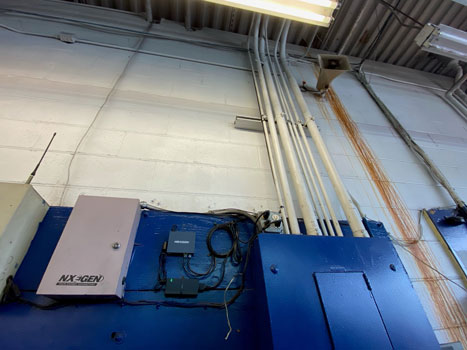
Security breaches in business settings result in far greater financial losses than those in home settings. For this reason, business security systems require sensors and detectors that are more sensitive, reliable, and capable of interoperability with other security devices than those used in home installations.
Commercial properties also often require sensors that cover large areas. Commercial-grade devices are necessary when sites like warehouses and parking lots need burglar alarms.
Business security systems often include 24/7 monitoring by on-site security guards or a remote monitoring service. While this level of monitoring is rarely appropriate for home security, remote monitoring is an inexpensive security solution for any business with high-value assets that need round-the-clock protection.
Professional installation is important for commercial-grade security, but not all professional installers are equal.
That's why Mammoth Security is honored to have a team with the knowledge and experience to properly install and configure business security systems of all sizes and levels of complexity. Our crew has the expertise needed to navigate the challenges that come up while customizing installations to fill security gaps and support other business needs.
In commercial environments where operations must be reliable, your ability to bring local experts on-site when you need them is essential. That's why Mammoth Security installations have warranties and easy access to ongoing technical support.
Commercial security systems are often much larger than home systems, requiring more hardware components for coverage.
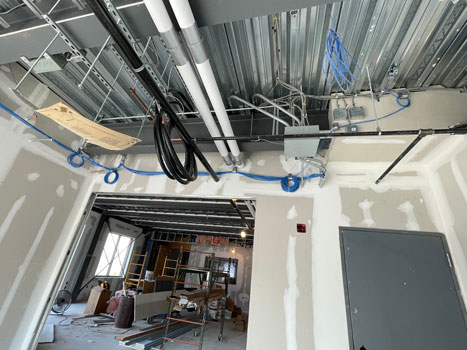
Securing multiple floors, entrances, or buildings requires more cameras, sensors, and access control devices—which do add up. The good news is that large installations can save money per square foot thanks to the efficient use of materials and discounts for quantity.
While it's rarely affordable for small and mid-sized businesses to employ live monitors on their properties 24/7, Mammoth Security offers an affordable remote monitoring service and is usually much more reliable than on-site guards.
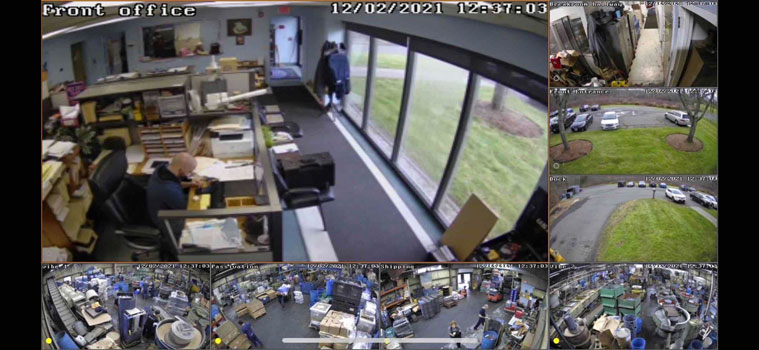
This is how it works: our monitors use the cameras we install, along with AI-supported video analytics, to keep an eye on your property. Potential security threats are recognized early, and our monitors take action to neutralize them right away.
A malfunctioning security system in a business setting can result in massive financial losses. Retailers lost $15-20 billion to shoplifting in 2022, according to Deep Sentinel. And employee theft costs U.S. businesses $50 billion annually, according to the Statistic Brain Research Institute.
For these reasons and many others, commercial-grade security products are a must for all businesses with assets worth protecting.
DIY security installations can be tempting due to lower costs. However, the risks are severe.
For starters, the quality of the equipment used in DIY systems isn't up to the same standard as commercial-grade equipment. Malfunctions resulting from small installation errors or low-quality devices bring businesses to a halt and can result in many thousands of dollars in losses for small businesses (and millions in losses for large enterprises and institutions).
What's more, most DIY systems come with limited warranties or no warranty at all—leaving customers responsible for troubleshooting all issues that arise. This lack of support can be time-consuming, frustrating, and costly, especially in environments where workflows matter and customers expect convenience and efficiency.
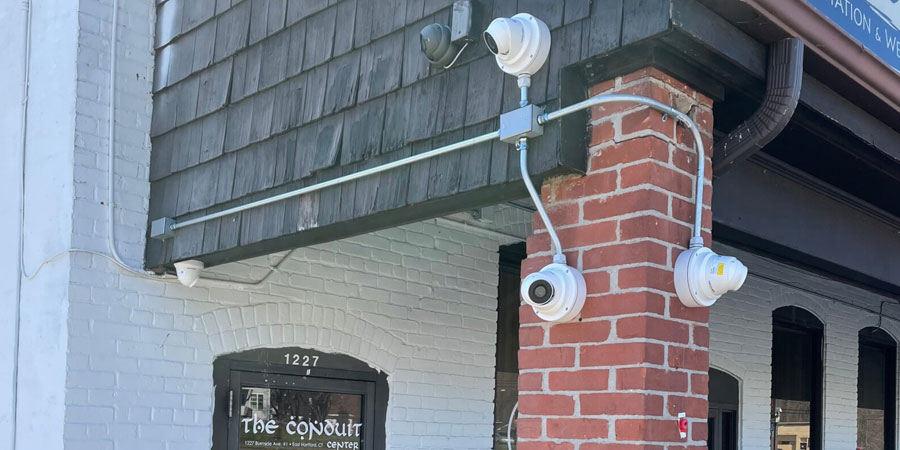
The right security system for your business depends on factors like the areas you need to secure and business requirements.
For example, access control systems dramatically improve commercial and institutional environments, but the model with the right features for your business depends on situation-specific factors like compliance requirements, the number of entries that must be protected, the number of visitors who need temporary credentials, and the complexity of site authorizations.
Similarly, while all commercial surveillance installations require high-definition or high-resolution cameras, different camera types are designed for particular types of footage collection.
For example, license plate recognition cameras are excellent for parking lot security, whereas cameras capable of facial recognition are ideal for busy entry halls.
Let Mammoth Security help you pick the right commercial security system for your business at the cost that meets your budget.
NOT COMPLETELY SURE?
860-748-4292